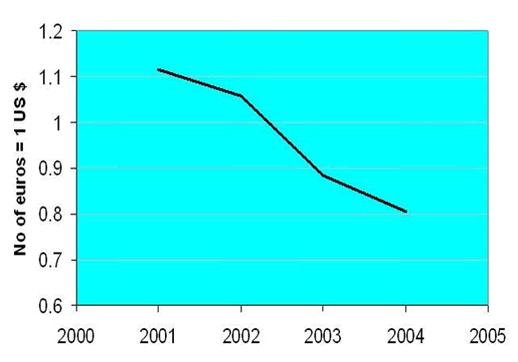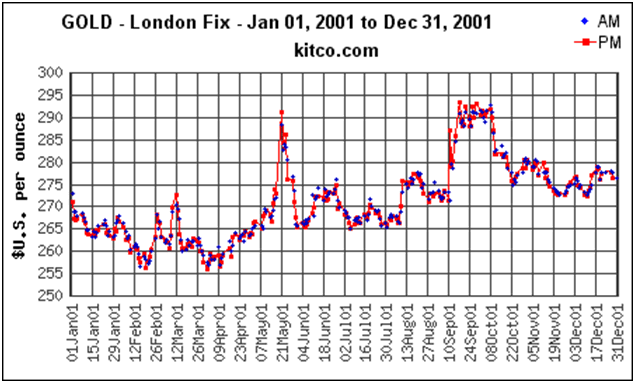From Bin Laden To Ben Bernanke, From War On Terror To War On Debt
Stock-Markets / Financial Markets 2011 May 05, 2011 - 06:06 AM GMTBy: Andrew_McKillop

 The notion that "war on terror" events have a large negative impact on the economy, when the terrorists are winning, and a large positive effect when they are losing is well anchored in market mythology. Gold and silver prices, and of course oil prices have been falling since May 1.
The notion that "war on terror" events have a large negative impact on the economy, when the terrorists are winning, and a large positive effect when they are losing is well anchored in market mythology. Gold and silver prices, and of course oil prices have been falling since May 1.
Conversely, no sign of serious growth in equities prices on major exchanges shows an important real world fact: war on terror, and war on inflation, debt and decline are two different and separate realities. This underlines, if its needed, the mythical dimension of cherished official beliefs since Sept 11, 2001. At that time, and for some still today it was and is almost an article of faith that "terror war" can only throw the global economy into chaos.
The official rationale was simple: before September 2001 the sky was blue. The 9/11 attacks sent the US economy, and allied economies into a tailspin that took "some long while" to pull out of. In fact, studies published by a huge number of economists, agencies and organizations - including the US Dept of Homeland Security - prove the real economic impacts of 9/11 were minuscule. http://www.dhs.gov/xlibrary/assets/statistics/publications/ois_wp_impacts_911.pdf
Measured by macro fundamentals like the trade weighted value of the US dollar, or in inverse mode the price of gold and silver in US dollars, long-term decline of the US economy occurred before, during and after the 9/11 attacks. To be sure US defense spending under G W Bush jumped almost 33 percent following the attacks, and the DJ Industrial Average stock index fell 7.13 percent the day following 11 September 2001, but neither of these events reflected or changed the economic real world.
This featured and features de-industrialisation and long-term manufacturing outplacement, loss of jobs, growing trade deficits and budget deficits, wage and revenue inequality, growing private debt and explosive growth of public debt.
This is the read-out for the US economy, and most other members of the so-called Allied war coalition for military adventure first in Afghanistan, then in Iraq (and latterly in a downsized way, in Libya). This shaky and flagging enterprise groups the USA with other, mostly European, countries teetering towards the same finality of hyper-debt.
The reality is that no serious 'peace dividend' economic spinoff resulted from these useless wars. The economic rationale for war on terror was always weak, making it eccentric to believe in Bin Laden's death generating "positive spinoff".

SHORTING THE RIGHT STOCKS
The role of breaking information and insider information are keys to driving markets, and profiting from the spin. 9/11 was remarkable for the "highly unusual" forward short trades on American Airlines and United Airlines stocks - evidently driven by knowledge the 9/11 attacks were imminent. Other examples included stock shorting and put option purchase on the expectation - or knowledge - of coming large falls in the stock value of Munich Re and AXA Assurance, two of the world's largest insurers, on September 6 and 7, 2001. Investor sentiment on insurance companies, like airlines, was heavily penalized by the coming September 11 attacks.
The quick and short-lived upturn in gold prices in September 2001 was another example, exactly like the silver crash of May 2, 2011 following news of Bin Laden's death. The US CFTC commodities trading watchdog, may have interesting information to communicate, one day, on unusual forward trades made in the few days preceding May 1, 2011.

Averge price USD/oz |
272.39 |
283.42 |
283.06 |
Monthly high |
277.45 |
293.25 |
291.85 |
Monthly low |
266.41 |
271.31 |
275.51 |
Month |
AUGUST 2001 |
SEPT 2001 |
OCT 2001 |
Today, in the period from about Monday 25/Wednesday 27 April 2011, the close study of short selling positions taken against certain key stocks and commodities will be useful supporting evidence for identifying those organizations, groups and individuals with forward insider knowledge of the coming annoucement of Bin Laden's death.
PROTECTING THE RIGHT MONEYS
Despite all post hoc musing on the strategic monetary role of 9/11, the evidence points only to short-term profit for traders with special insider information of the coming attack and no real benefit to the US dollar, let alone the US economy.This conclusion applies even more strongly to sequels from the announced death of Bin Laden in a strange sea burial filmed from a discreet distance. More important for world monetary terror we have the constant action of Ben Bernanke to create serious and real alarm. This money printing strategy is close to the end of its life but will not be terminated by a sea burial somewhere off the shores of Oman, and may in fact be reinforced.
May 2 the U.S. dollar declined to a three-year trough against major currencies and will likely remain under pressure as investors seek higher rates offered abroad and await any move by Ben Bernanke to rein-in the Federal Reserve's loose monetary policy. Other central banks, like the ECB and BOE, and money authorities of China, India, Australia and Canada are either already tightening policy or are expected to tighten lending in the months ahead.
Higher rates in Europe have undermined any putative support for the dollar, boosting the euro by 11 percent so far this year.The UK austerity cure and higher lending rates have enabled sterling to gain 7 percent on the dollar.
The rational risks and dangers are therefore easy to summarize: in the absence of real or assisted revenge attacks by Al Qaeda, which could or might stengthen the US dollar but more certainly gold, silver and oil prices, returning confidence in the USA's role and place in the world will be used to support arguments for further easing. After the sea burial, the QE3 liner may take to the high seas. This is all the more likely due to increasing signs of stagflation in the US (and Europe), and the fantasy economics but official Ben Bernanke line that rising inflation is a positive sign for the economy.
By Andrew McKillop
Contact: xtran9@gmail.com
Former chief policy analyst, Division A Policy, DG XVII Energy, European Commission. Andrew McKillop Biographic Highlights
Andrew McKillop has more than 30 years experience in the energy, economic and finance domains. Trained at London UK’s University College, he has had specially long experience of energy policy, project administration and the development and financing of alternate energy. This included his role of in-house Expert on Policy and Programming at the DG XVII-Energy of the European Commission, Director of Information of the OAPEC technology transfer subsidiary, AREC and researcher for UN agencies including the ILO.
© 2011 Copyright Andrew McKillop - All Rights Reserved Disclaimer: The above is a matter of opinion provided for general information purposes only and is not intended as investment advice. Information and analysis above are derived from sources and utilising methods believed to be reliable, but we cannot accept responsibility for any losses you may incur as a result of this analysis. Individuals should consult with their personal financial advisors.
© 2005-2022 http://www.MarketOracle.co.uk - The Market Oracle is a FREE Daily Financial Markets Analysis & Forecasting online publication.


